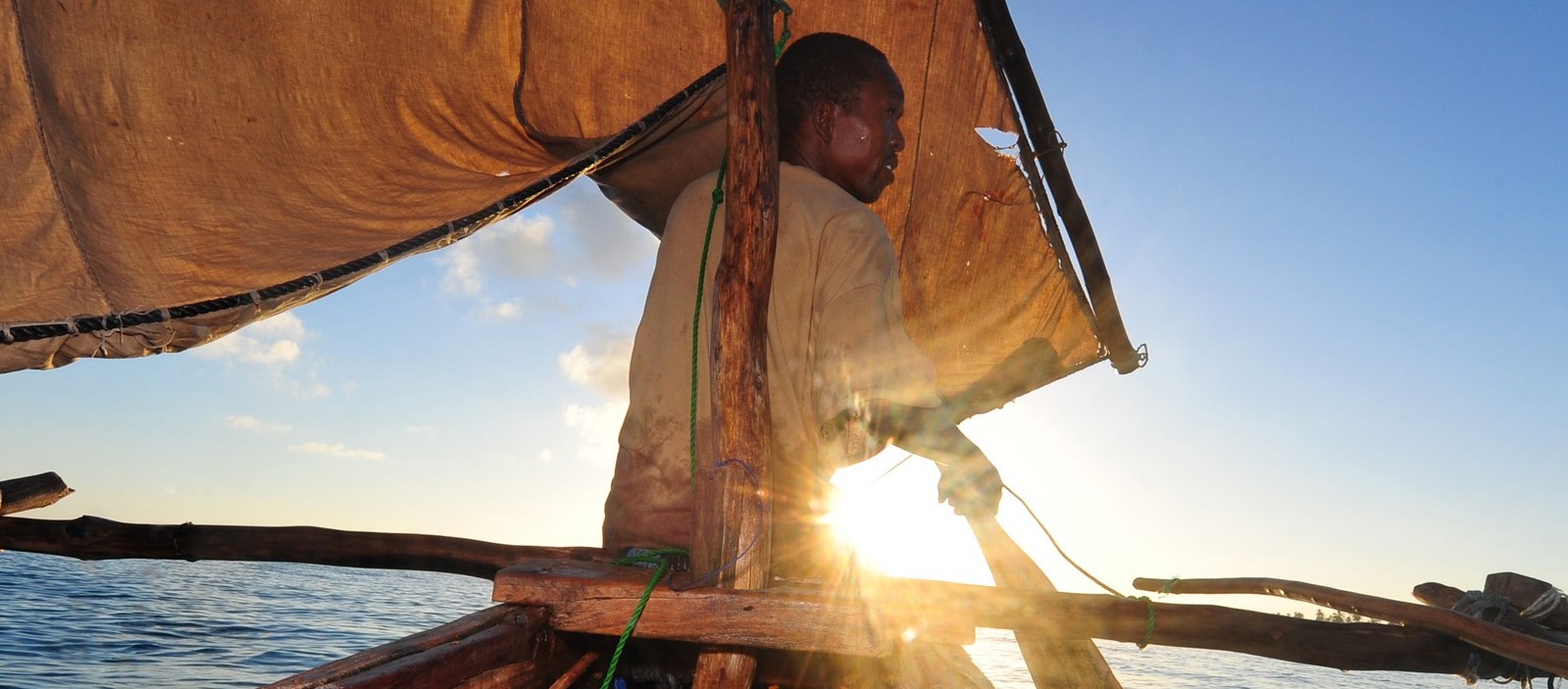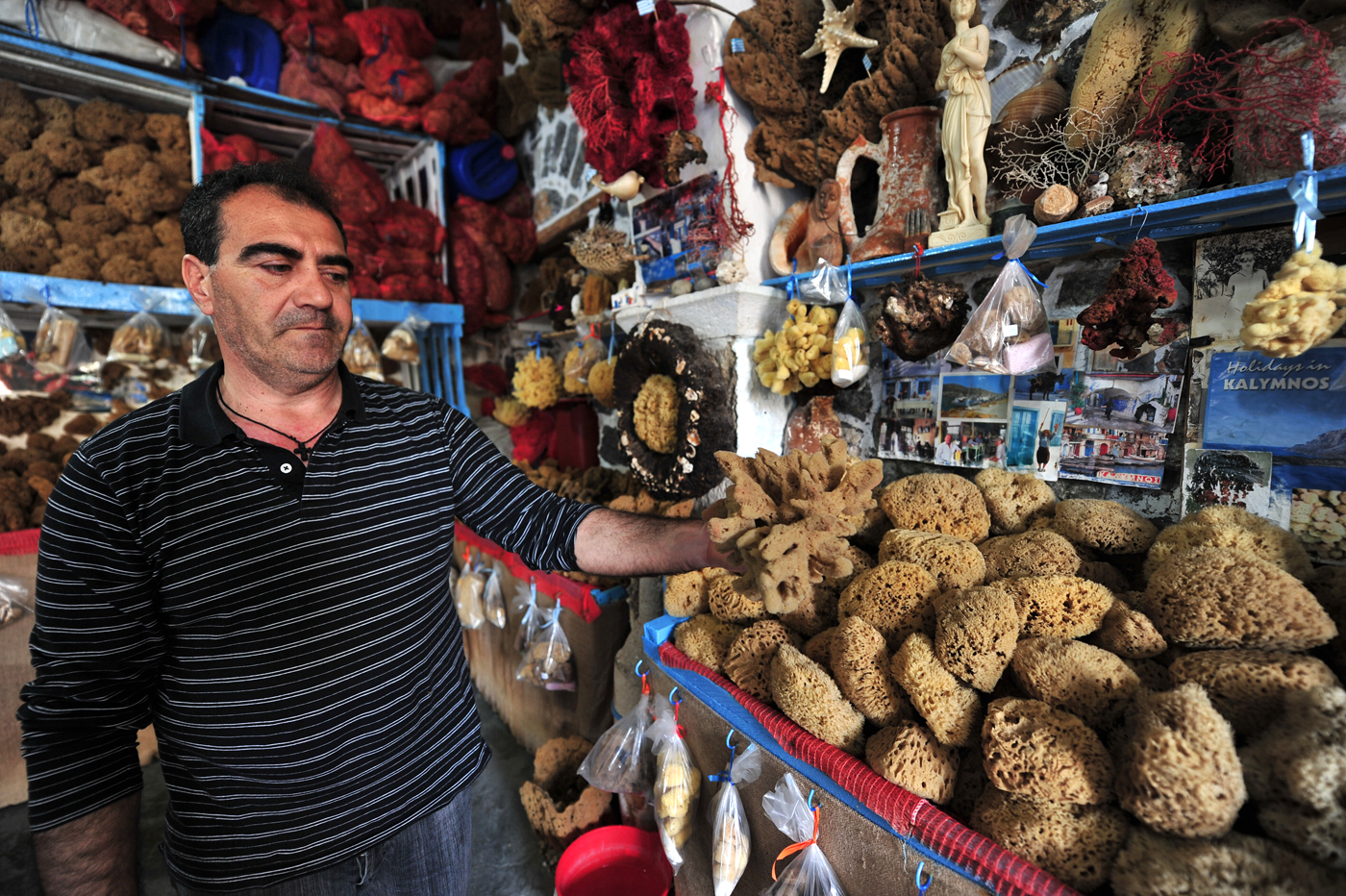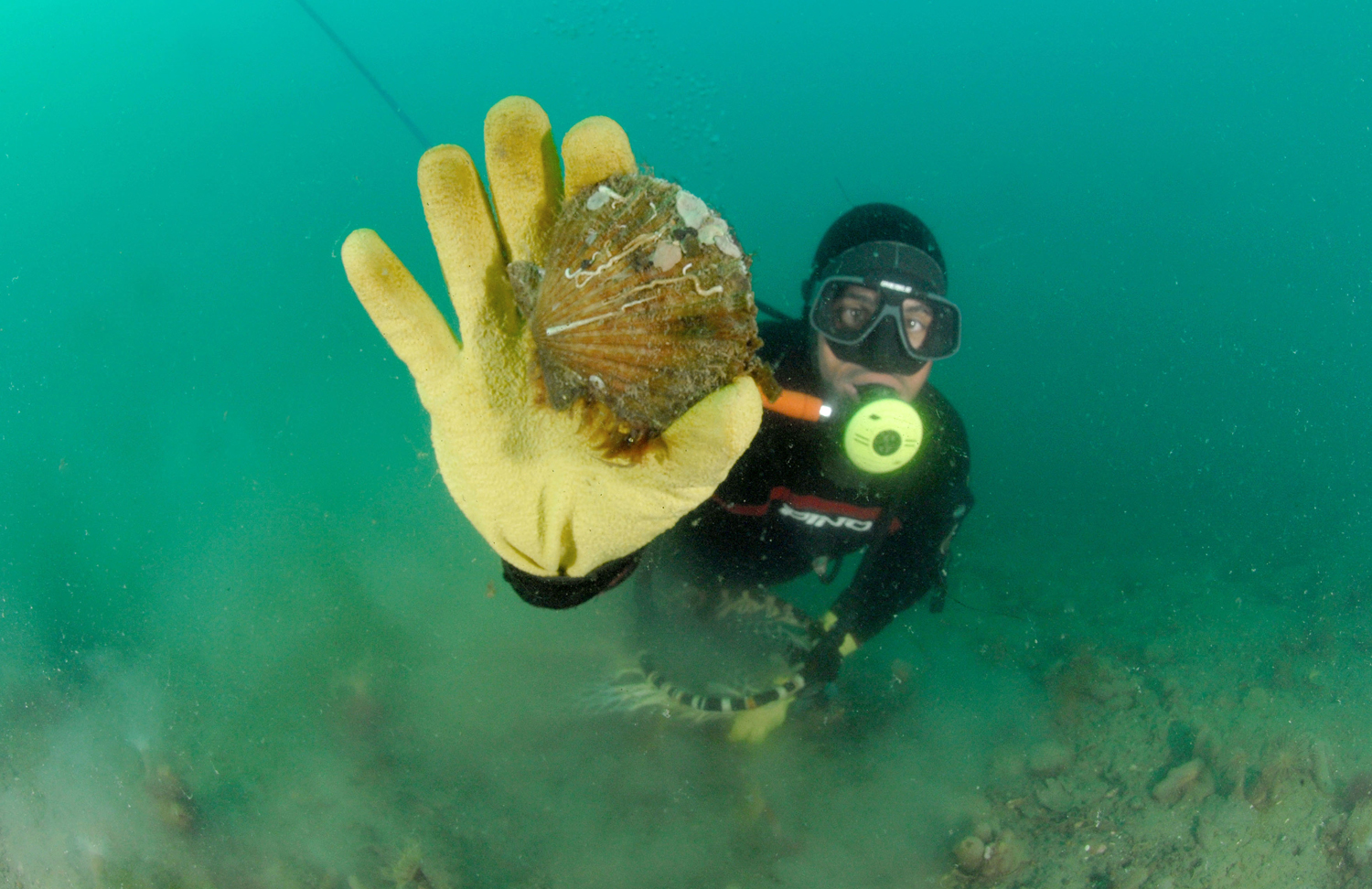
Kigamboni inlet, Zanzibar Channel – Indian Ocean
Our fisherman is called Mohamed (Modhi) Johari, 46 years old. He has no parents, but a beautiful sister and a few nephews that live just near by.
He has no parents, but a beautiful sister and a few nephews that live just near by.
He lives in a tiny village by the sea.
Every morning before sunrise he is already beside the skyline, preparing the small canoe made of Mango tree and a homemade fabric, as the sails. After last check of every details and trying no to forget any instrument that later on, could be crucial for the catch.
Even though it is very early, Modhi is accompanied by his sisters even the younger ones. They smile.
They walk to the tide line and it seems that at every turn, the laughs are increasing. Perhaps by my
presence? Perhaps they are surprised to see me climb into the small canoe with Modhi instead of
staying with them on the coast.
What they will do next is take off one of their ‘sarongs’. The colorful piece of cloth, a symbol and
an important part of African culture that every woman will use from birth and is wrapped round it.
These Sarongs are used in different ways: as a skirt, dress, to protect an unborn child from the sun
and heat … And to fish.
And that’s how I see them get into the sea a few inches deep and submerge the ‘Sarong’ using it as a
strainer for fish and algae.
 In the meantime Modhi is away from the coast.
In the meantime Modhi is away from the coast.
Modhi rows offshore for about an hour… or maybe two. Depending on where he left the underwater cages the night before. Just in case good currents were on his side, a good catch is waiting to be dragged to the surface. So, this same afternoon, it is certain that he will be visiting the ‘Centre’ of the village, to talk about weather conditions, new cargo boat arriving to port, and of course, to sell some fish. But now, back at sea and rowing towards his point, Modhi may try to catch a squid or two with the fishing line. You can tell by his face how easy he manages to live on harmony with this vast ocean.
 On his tiny canoe, he feels safe and enjoys the smooth lights that begin to appear.
On his tiny canoe, he feels safe and enjoys the smooth lights that begin to appear.
After removing the fish from the cages, they will be returned to the sea, but first he checks them to make sure they are in good condition for another day of fishing.
Modhi makes these cages out of Bamboo sticks, different thicknesses depending on the cage design. These rods have high elasticity which facilitates construction and reinforcing cages and low pressure streams of the sea. Sometimes he negotiates with the Bamboo seller, lea Bing a cage for him to sell, as part of payment for the raw material. Not bad!
Modhi observes the sea, it doesn’t “behave” as it used to a few years ago. The channel is very popular now. Many fishing boats come from Zanzibar, the great tourist island, and cross the channel in search of better fishing. Large vessels like cargo ships have become very common in this route meeting too close to the coast, which scares away all marine life. And it is for this reason that Modhi must paddle farther, and longer eventually coming home with less to sell.







